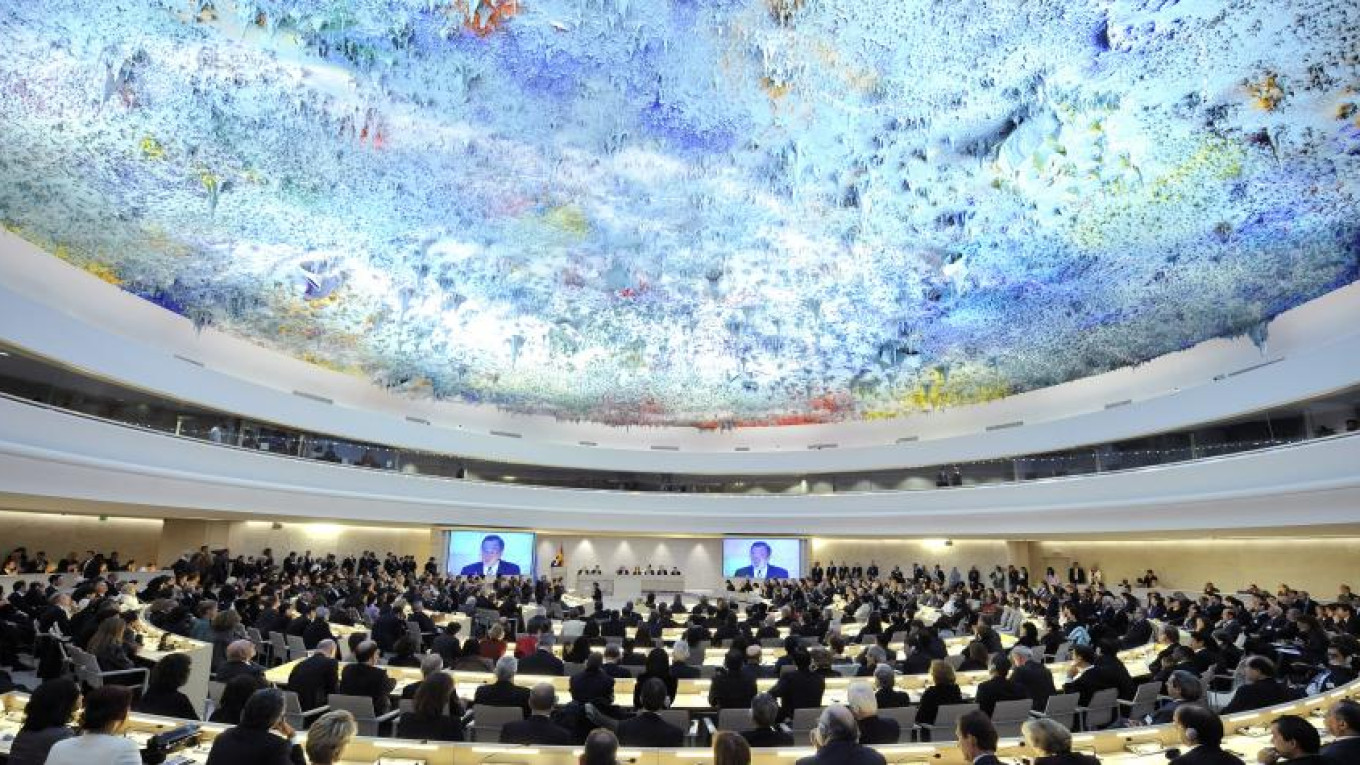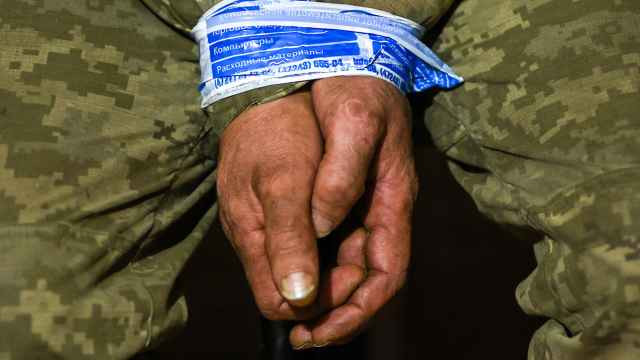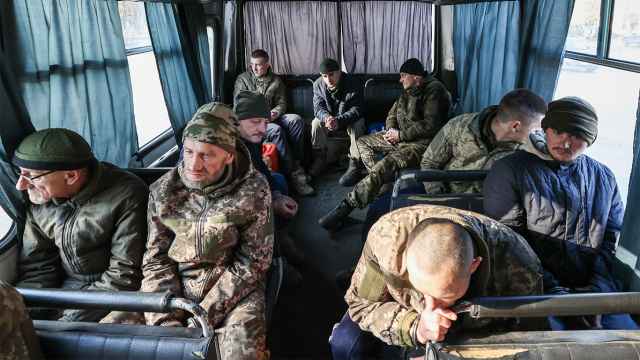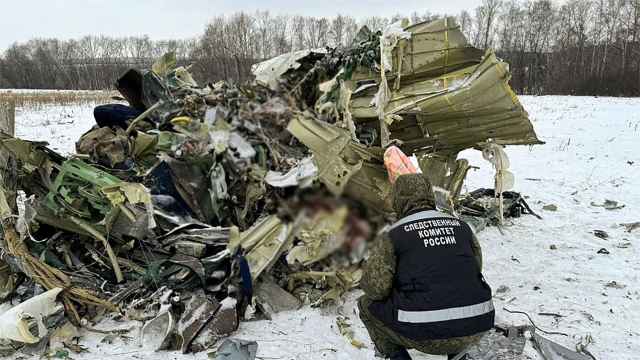Jails controlled by Russia are deliberately withholding medical care for Ukrainian prisoners, with doctors in one prison even taking part in what it called "torture," a commission mandated by the UN rights council said.
The commission, set up by the Human Rights Council to investigate violations in Ukraine since Russia's invasion, had already concluded that Moscow's occupying forces were using torture "systematically."
But in his oral report to the council, commission chair Erik Mose said torture had become a "common and acceptable practice," with Russian authorities acting with "a sense of impunity."
Beyond the torture and rape in prison camps or the rape of women in occupied towns, Mose denounced "the lack of adequate medical assistance to those who desperately needed it" in detention centers controlled by Moscow.
"In one facility, even penitentiary doctors participated in the torture," Mose told the council.
His report was based on testimonies from former Ukrainian inmates at the Olenivka prison in occupied east Ukraine.
It said that on July 29, 2022, an explosion at the site caused the death of many Ukrainian prisoners of war, with Russia accusing Kyiv of bombing the jail.
According to the inmates, "no immediate medical support was provided to dozens of others who suffered life-threatening injuries."
Only doctors from the Ukrainian army detained at the prison colony attempted to tend to the victims.
But they had to work "in the dark and without vital medical equipment, using the small amount of supplies remaining in their own first-aid kits and bed sheets for bandages," Mose said.
"They saw many die that night, while the leadership of the Olenivka colony stood by and watched."
Many of the former inmates were left with "grave or irreparable physical harm and trauma," Mose said.
Some prisoners struggled to return to civilian life after their release.
"I was haunted by the fear of being imprisoned again. I am at home physically, but I still feel mentally imprisoned by the trauma inflicted upon me by the Russians," one prisoner said, quoted in the report.
Mose added that a financial crisis facing the UN had "severely affected the staffing of the secretariat of the Commission and its ability to travel."
A Message from The Moscow Times:
Dear readers,
We are facing unprecedented challenges. Russia's Prosecutor General's Office has designated The Moscow Times as an "undesirable" organization, criminalizing our work and putting our staff at risk of prosecution. This follows our earlier unjust labeling as a "foreign agent."
These actions are direct attempts to silence independent journalism in Russia. The authorities claim our work "discredits the decisions of the Russian leadership." We see things differently: we strive to provide accurate, unbiased reporting on Russia.
We, the journalists of The Moscow Times, refuse to be silenced. But to continue our work, we need your help.
Your support, no matter how small, makes a world of difference. If you can, please support us monthly starting from just $2. It's quick to set up, and every contribution makes a significant impact.
By supporting The Moscow Times, you're defending open, independent journalism in the face of repression. Thank you for standing with us.
Remind me later.






